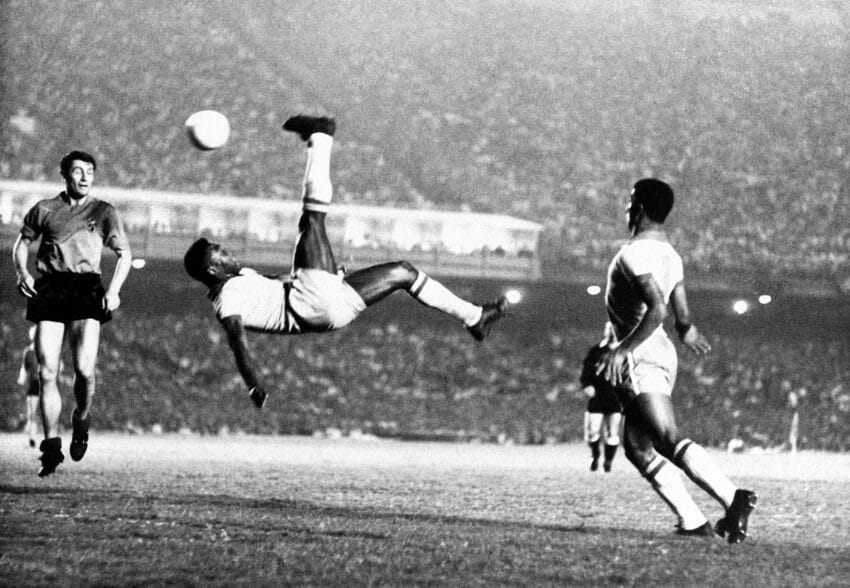Rethinking the Offside Rule in Football

Note for our USA & Canadian readers from Digital Outpost: In this article, the term “Football” is used in the global context, referring to what is commonly known as “Soccer” in the United States. We appreciate your understanding.
Understanding the Unnatural Barrier
In our era, where digital landscapes and real-world sports often draw parallels, football’s offside rule stands as a beacon of contention. This rule, integral in today’s game, can stifle the sport’s inherent dynamism, much like an unexpected firewall can interrupt a seamless digital stream. Yet, as platforms aim to ensure smooth navigation for users, we must ask: Does the offside rule disrupt football’s natural rhythm?
Think back to the 2010 World Cup. The controversies surrounding offside decisions mirror the interruptions one might face in the digital domain when confronted with sudden barriers. Both scenarios accentuate the delicate balance between regulation and freedom.
Defense in the Modern Era: A Fusion of Skill and Strategy
In the evolving landscape of football, defense has transformed from a mere act of stopping the opponent to a strategic art form. Modern defenders are no longer just the last line before the goalkeeper; they are playmakers, orchestrators, and sometimes, even goal-scorers. Much like how platforms such as Digital Outpost aim to provide a comprehensive and seamless user experience, a well-coordinated defense seeks to offer a complete package, balancing both attack and defense.
In this context, the offside rule, though crucial, sometimes feels like an outdated tool in the defender’s arsenal. Depending solely on it might be likened to a digital platform relying on just one feature for its user satisfaction. True defensive mastery shines when a team can intercept, tackle, read the game, and transition the ball effectively, all without over-relying on the safety net of the offside rule.
The 2014 World Cup stands as a testament to this evolved understanding of defense. Germany’s defenders displayed a prowess that wasn’t just about catching opponents offside but about controlling the game’s rhythm, predicting opposition moves, and even launching attacks. Their dynamic play is a reminder that football, much like the digital world, thrives on innovation, versatility, and a willingness to adapt.
In the age where adaptability and multifunctionality are paramount – whether on a digital platform or on the football pitch – it becomes crucial for defense strategies in football to reflect these modern values. It’s about crafting a holistic approach, where the offside rule is just one of many tactics employed, not the centerpiece.
Decoding Football for the Next Generation: Simplifying Complexity
In an era teeming with rapid information and easy-to-digest content, football faces the challenge of ensuring its rules and intricacies are easily understood by the next wave of fans. The offside rule, despite its foundational role in the sport, often emerges as a puzzling concept, especially for those newly introduced to the game.
Just as educational apps simplify complex topics for students or user interfaces aim for intuitive designs, football too has a responsibility to make its rules transparent and graspable. The continuous growth and global appeal of the sport hinge upon this clarity.
When a newcomer tunes into a match, their experience should be of immersion and excitement, not confusion. The sport, in its essence, is a beautiful dance of strategy, athleticism, and teamwork. However, complexities like the offside rule can act as barriers, distancing potential enthusiasts.
It’s imperative for football’s governing bodies to consider how the game is presented, ensuring that its core beauty isn’t overshadowed by complexities. As the sport continues to evolve, so should its approach to engaging and educating its future fan base.
The Artistry of Pelé: Navigating the Offside Terrain
Pelé’s name resonates with football enthusiasts across generations, symbolizing unparalleled skill and a deep passion for the game. His performances were a masterclass in understanding the sport’s intricacies, including the strategic play around the offside rule. His flair for outwitting defenses, baiting them into mistakes, and making timely runs showcased a genius that transcended the sport’s regulations.
But what stance might Pelé, the game’s grand maestro, take on the current offside debate?
Given his instinctive style of play, Pelé might argue for a more fluid game that allows attacking talents to flourish without undue constraints. He thrived on freedom, intuition, and the element of surprise—all of which can sometimes be stifled by an overly rigid interpretation of the offside rule.
One can imagine Pelé advocating for a game that celebrates creativity and spontaneity over stringent adherence to rules that can interrupt the game’s flow. In essence, while he maneuvered the offside rule brilliantly during his time, he might lean towards a revision or reinterpretation that aligns more with the spirit of beautiful, free-flowing football that he embodied.
Conclusion
In the vast panorama of football, where legendary figures like Pelé have left indelible marks and where modern defenses echo the dynamism of our age, the offside rule remains a contentious point. As we navigate this debate, reflecting on the insights of past maestros and understanding the needs of future fans becomes essential. The true essence of football lies in its ability to balance tradition with evolution. In a world that continuously redefines its boundaries, football too must ensure its rules amplify the game’s beauty, passion, and creativity while remaining accessible and engaging for generations to come.
#SoccerEvolution #OffsideDebate #PeléPerspective #ModernDefense #FutureOfFootball #SoccerRules #BeautifulGameReimagined #PitchPassion #DigitalAgeSoccer #GameChangers
